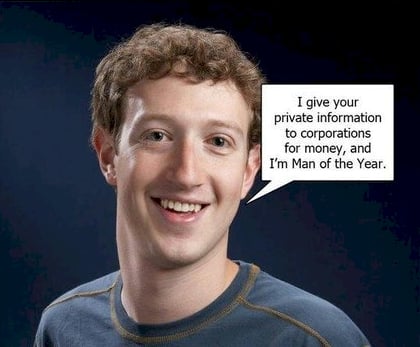This week we started a “pound Nick with questions” thread — and you’ve been pounding! Great questions and topics — and pointed insights. A recurring theme on that thread is recruiters — the inept, the inane, the ones who waste your time, and the ones who leave you frustrated and angry. (There are good recruiters out there, but that’s another topic.)
Reader Dave started to boil it down in his 1/18 comment on the previous posting:
One other thing…
Just recieved the occasioal newsletter from a so called “head hunter/recruiter.” He said he has developed a relationship with an offshore vendor in order to provide services/people to do work. One of the reasons he gave for doing this is because companies “can’t find the right people.”
Quite frankly, this made my blood boil for all of the reasons Nick states in his blog post. You can’t tell me that with all the unemployment, underemployment, people who gave up looking for now, people looking for a change and all the people graduating from college, that you cannot find anyone to fill your positions?
This is a prime example why I dislike most “search staff.”
Dave draws a whole new thread from the strands that come together in that discussion. I was going to respond to him briefly, but then I realized Dave has generated a whole new topic. He deserves to know…
 Why You Hate Recruiters
Why You Hate Recruiters
It’s no accident. It’s a well-orchestrated con game run by experts. HR departments pay expensive consultants to define the “best practices” ($$$) and to promote the “best technologies” ($$$$$$$) that enable HR to maintain the 4:1 ratio of unemployed people to unfilled jobs in America. (That’s 14.2 million unemployed, and 3.2 million vacant jobs.)
Translation: Corporate America pays a lotta money to act dumb when it recruits and hires.
Thanks, Dave, for sharing that newsletter you received from the recruiter who’s going offshore to fill American jobs. But the problem is higher up the food chain. Employers are the ones spending the money here. Recruiters like this one just chase the low-hanging fruit. I’d love to see Congress haul these people in front of a committee and ask them:
“So, when you interview talented job applicants, then what do you do to cultivate them into productive employees?”
The answer is splattered all over the popular media:
“We hire only perfect fits! With these intelligent databases, we don’t have to take chances on training anyone who can’t already do the job with their eyes closed!”
People and companies want to believe that technology can meet the hiring challenge. Savvy, insightful managers who know how to judge talent are no longer required. Give HR a database of jobs and resumes, and they’ll throw money at it forever, waiting for a payout. The job boards are like slot machines for HR wonks: An addiction. The only beneficiary is “the house” — in this case, HR consultants and database vendors who cater to employers who want to believe.
Selling The Mess to HR: A full-time gig ($$$$)
Example: Check out RecruitingBlogs, where “internet recruiting gurus” tout the databases and the social thingies that they get paid to explain to their clients:
“…we’re going to release a ranked list of the Top 25 Online Influencers in HR. This list is completely generated by algorithm (think Google). The list ranks the Top 25 voices in HR based on their online footprint…”
Gimme a break. Online footprints? That’s how we judge value? That’s what consultants teach HR — and HR pays big bucks. That’s why job hunters like Dave are left swinging in the breeze. The recruiters are part of a big social jerk, fantasizing about social media. The blogging consultant goes on to describe his brethren:
“So, I was at this party a couple of weeks ago. All sorts of twitterati were there…”
Then it gets down to brass tacks: Making money by “explaining” the databases to HR rubes with deep pockets:
“There is money to be made in the field today because the techniques required to find people are arcane and confusing. Additionally, with the strong exception of Avature and Broadlook’s products, there are no useful tools for the automation of the process.”
What’s he touting with those two products? Expensive databases that employers use to intoxicate their personnel jockeys. Note the implicit focus on automation of recruiting. The more automated HR becomes, there’s more “money to be made” because nobody can understand this crap. (Try to scrape this one up off the ground in one piece, from the HR Examiner Blog: “Meaning and data in the social web.”)
One of the “strong exceptions” blogger John Sumser refers to, Avature, has a tagline:
“Bring Social Media and Web 2.0 tools together and create unique and innovative solutions to your recruiting challenges.”
How about getting the consultants out of the bars (where they’re being wined and dined by the “arcane and confusing” online recruiting tools vendors), and the recruiters off their asses, and bringing together a few brains to meet some of the 3.2 million “talents” that the software can’t quite figure out? HR is bogged down, and employers are dying for good workers, because HR doesn’t recruit — it pays consultants to distract it with non-stop workshops, white papers, and “best practices” designed to facilitate deep contemplation of the HR navel. ($$$$$)
(By the way, John Sumser is not the only consultant driving HR down into the whirling blade that’s waiting to process you. There’s the aforementioned RecruitingBlogs.com, which delivers non-stop juice to keep the blender going; ERE.net, where recruiters go to talk it all through; and a host of sycophants that have figured out “there is money to be made in the field today…” so let’s get together for another mind-expanding party and to count our money.)
 Recruitomatic: It’s all in there
Recruitomatic: It’s all in there
Then RecruitingBlogs.com refers to “Mr. Recruitomatic.” That’s where I rest my case. This is a cluster duck.
Mr. Recruitomatic could be the title of a book about the state of unemployment in America, or it could be an inside joke about how HR rotates on its consulting budgets. It’s all one big database blender, grinding up people into keywords with no decision-making or intelligence beyond the algorithms. Mr. Recruitomatic is churning out swill that nobody wants — or there wouldn’t be 14.2 million unemployed, and 3.2 million vacant jobs, would there?
Or maybe it’s just your fault, Dave. You ignorant, behind-the-times, unemployed slob — you’re just not prepared to be “the perfect fit.” Get some new keywords. Find some meaning and data in the social web. Reduce yourself to what HR is willing to hire.
Welcome to The Social Jerk
“We have a shortage of talent!” Yah — in HR. No shortage of consulting fees, though. ($$$$) No shortage of jargon to mix up with algorithms and some social sauce. But the farther HR sticks its head into the blender, the more it’s clear the talent shortage is in the corner office where the consulting bucks are spent.
Dave, this is what drives HR departments stupid. This is why you hate recruiters. There is an entire industry that earns big bucks mixing up the HR mess that you describe. It’s the motor driving the HR Recruitomatic. Why do I rag on it so? Because the consulting crowd doesn’t have any idea what’s going on outside the blender — they don’t see you getting splattered with muck. There are no fees to be had from you.
While these twitterati advise their eager HR clients about what’s “completely generated by algorithm,” ($$$Cool) they have no idea what is the impact of their only-half-clever, inbred “initiatives.” They’re not out on the street, where guys like you don’t see what’s “social” about software deciding whether you can ride a fast learning curve so you can do a job.
The Recruitomatic and HR’s database-itis — this is why there’s a 4:1 ratio of unemployed Americans to vacant jobs. It’s why you get splattered with HR’s mixed-up rationalizations while you’re trying to earn an honest dollar for doing honest work with an employer that knows how to run a business. And that knows how to hire.
Anyone’s odds — if they’re unemployed — are about 4:1. But what are the odds the board of directors at any company has a clue what’s going on? They don’t get why you hate recruiters. They don’t get why so many jobs at their companies are vacant and work is left undon. They don’t get that the “talent shortage” is largely manufactured by consultants who make out only when HR is playing with Mr. Recruitomatic — not when HR actually hires anybody.
The social jerk is a profitable $$$$$proposition, Dave. Except for you and your 4.2 million buddies.
: :
 At what point will Facebook start selling your “timeline” to employers who will be as happy to pay for it as they are to pay for access to your online resume?
At what point will Facebook start selling your “timeline” to employers who will be as happy to pay for it as they are to pay for access to your online resume? Pimping your cred
Pimping your cred














